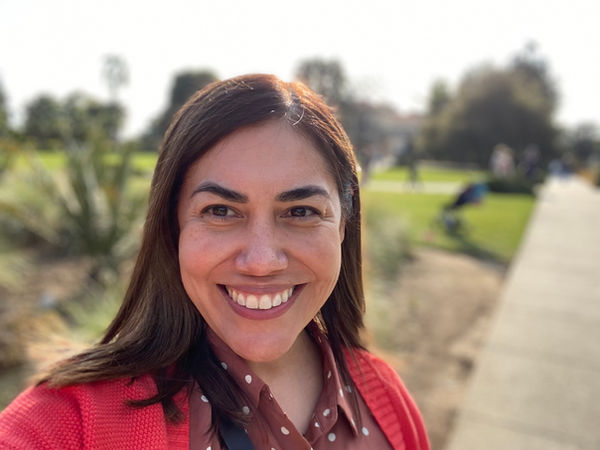MIREYALOZA
Food, Immigration, and Labor
Historian, Curator, and Author


BIO
I am a historian and curator whose research focuses on Latinx history, labor history, and food studies. My book Defiant Braceros: How Migrant Workers Fought for Racial, Sexual and Political Freedom (UNC Press) examines the Bracero Program and highlights how guest workers navigated questions of indigeneity, intimacy, and transnational organizing. In researching this book, I collaborated with the National Museum of American History to create the largest collection of bracero oral histories and to develop a digital archive. You can listen to the interviews here. I am currently writing my second book.
My first book received the 2017 Theodore Saloutos Book Prize from the Immigration and Ethnic History Society and the Smithsonian Secretary’s Research Prize. I was also named a Distinguished Lecturer by the Organization of American Historians. My research has been supported by the Ford Foundation, the Mexico-North Research Network, and the National Endowment for the Humanities. Prior to joining the faculty at Georgetown University, I was an Assistant Professor of Food Studies at New York University and a curator at the Smithsonian Institution’s National Museum of American History (NMAH), where I continue to collaborate on public history projects.
I regularly deliver lectures and keynote addresses on food and immigration, agricultural labor, and Latinx history, and I lead workshops on oral history methods and public history practice.
I earned my Ph.D. in American Studies and an M.A. in Public Humanities from Brown University, as well as an M.A. in Anthropology from the University of Texas at Austin. As an undergraduate at the University of Illinois at Urbana-Champaign, I designed my own major and became the first student to graduate with a degree in Latina/o Studies.
If you would like to learn more about my family and research listen to this episode of Latino USA.
RESOURCES FOR TEACHING LATINX HISTORY
I love teaching Latinx Labor and Civil Rights History, highlighting stories about labor organizers and workers in our food system. Here are some of my favorite...




Defiant Braceros: How Migrant Workers Fought for Racial, Sexual, and Political Freedom
2016 Theodore Saloutos Book Award, Immigration and Ethnic History Society
2017 Smithsonian Secretary's Research Prize, Smithsonian Institution
In this book, I shed new light on the private lives of migrant men who participated in the Bracero Program from 1942 to 1964, a binational agreement between the United States and Mexico that allowed hundreds of thousands of Mexican workers to enter the country on temporary work permits. Although the program and the broader issue of temporary labor migration have long been politicized on both sides of the border, I argue that the prevailing romanticized image of braceros as a family oriented, productive, and law abiding workforce obscures the diverse and complex realities of the workers themselves. By focusing on underexplored aspects of their lives, including transnational union organizing, the sexual economies of both heterosexual and queer workers, and the ethno racial boundaries among Indigenous Mexican braceros, I show how these men defied political, sexual, and racial norms.
Drawing on an archive of more than 800 oral histories from the United States and Mexico, I differentiate between the experiences of mestizo guest workers and those of Mixtec, Zapotec, Purépecha, and Maya laborers. In doing so, I illuminate the many ways these workers responded to the discrimination and exploitation of an unjust system whose legacies persist today.
Thanks to an NEH grant you can download it for FREE HERE and if you want a paperback you can purchase it HERE.
BRACERO HISTORY ARCHIVE
Mireya Loza is a public historian who contributed oral histories, trained communities, and helped amass over 800 oral histories with bracero communities featured in the Bracero History Archive.
Supplemental materials including oral histories and doucments, for Defiant Braceros can be found in the Bracero History Archive. Below is a sampling.
Juan Loza (ID Card)
Juan Loza (Contract)
Nemicio Meza (Recording)
Luis Barocio Ceja (Recording)
Antonio Aragon (Recording)
Patricia Sahera (Recording)
IN THE MEDIA
TEEN VOGUE
May 17, 2019
Web Interview, “Trump Unveils New Immigration Policy Proposal That Could Hurt Low-Income Immigrant Workers,” by Lucy Daviolo
SMITHSONIAN MAGAZINE
July 25, 2018
Web and Print Interview, "Guatelaman Immigrant Luisa Moreno was Expelled from the U.S. for her Groundbreaking Labor Activism," by Ryan P. Smith
NATIONAL MUSEUM OF AMERICAN HISTORY
November 17, 2017
"The Worker's Turkey," O’ Say Can You See Blog, National Museum of American History
TIMELINE
September 6, 2017
Web Interview, “These Intimate Photos Chronicle the Mexican Worker Program that Help Feed and Build America,” by Ryan Seibel
UNC PRESS BLOG
April 5, 2017
"100 Years of Mexican Guest Workers in the United States," Immigration Roundtable
NEW BOOKS NETWORK
September 7, 2016
Podcast Interview, "Defiant Braceros," hosted by Lori Flores
C-SPAN
December 3, 2015
Lectures in History, "20th Century Latino Labor Movements: The Bracero Program," Series in the classroom
YALE NEWS
November 18, 2016
Web Interview, “Smithsonian Scholar Examines Legacy of the US-Mexico Bracero Program,” by Blake Thorkenson.
NATIONAL MUSEUM OF AMERICAN HISTORY
November 14, 2016
Podcast Interview, Al Cine Vámos - Braceros, by Mayela Caro
SELECT ACADEMIC PUBLICATIONS
2017
“The Japanese Agricultural Workers’ Program: Race, Labor, and Cold War Diplomacy in the Fields, 1956-1965.” Pacific Historical Review Vol. 86, No. 4.
*Winner of the Vicki L. Ruiz Award for the best article on Race in the North American West, Western History Association, 2018.
2016
"From Ephemeral to Enduring: The Politics of Recording and Exhibiting Bracero Memory." The Public Historian, Vol. 38, No. 2: 23-41.
2016
“Unionizing the Impossible: Ernesto Galarza and Alianzade Braceros Confront PL78.” In special issue co-edited with Bill Johnson-González. Diálogo 19, no. 2.
2010
“Alianza de Braceros Nacionales de Mexico en los Estados Unidos, 1943-1964.” In ¿Que Fronteras?: Mexican Braceros and a Re-examination of the Legacy of Migration, ed. Paul Lopez (Dubuque: Kendall Hunt Publishing).
CHECK OUT SOME MORE OF MY MUSEUM WORK
GET IN TOUCH




